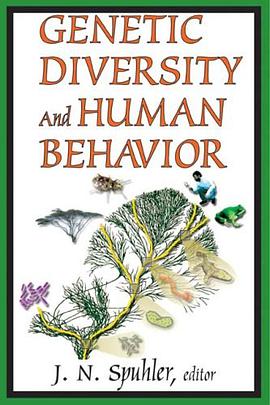

具體描述
Genetic differences in humans, like those between individuals of any animal or plant species and those between species, are all products of the evolutionary development of the living world. These differences, with their behavioral consequences, can only be understood in the light of evolution. Our understanding of evolution, however, has itself evolved. The Darwin-Wallace theory of evolution appeared in the nineteenth century. Since then, development of evolutionary thought has gone through several stages. The contributions in this volume describe those stages. The first four decades after Darwin were dominated by studies in comparative anatomy, embryology, systematics, zoogeography, phytogeography, and paleontology, all intended to discover and examine the evidences of evolution. But the phylogenies of the animal and plant kingdoms, that is, the history of the linkages of animal and plant organisms as they change through time, were less well documented. In particular, the phylogeny of humans is still not completely known. The period following World War Two saw acceleration of activity in fields in and bordering on behavioral genetics. Research in neuroendocrinology showed that higher cortical centers could influence and be influenced by the hypothalamus, pituitary, thyroid, adrenals, and gonads. Genetic diversity in the function of these organs had obvious consequences for social and cultural behavior. The failure of some early and long-reinforced attempts at conditioning by students of comparative animal behavior showed species-specific innate behavior could not be ignored in any theory that attempts to combine psychology and anthropology. This classic volume summarizes the development of evolutionary thinking, and describes how what we know about genetic diversity links up with research on human behavior.
著者簡介
圖書目錄
讀後感
評分
評分
評分
評分
用戶評價
相關圖書
本站所有內容均為互聯網搜索引擎提供的公開搜索信息,本站不存儲任何數據與內容,任何內容與數據均與本站無關,如有需要請聯繫相關搜索引擎包括但不限於百度,google,bing,sogou 等
© 2025 book.quotespace.org All Rights Reserved. 小美書屋 版权所有




















